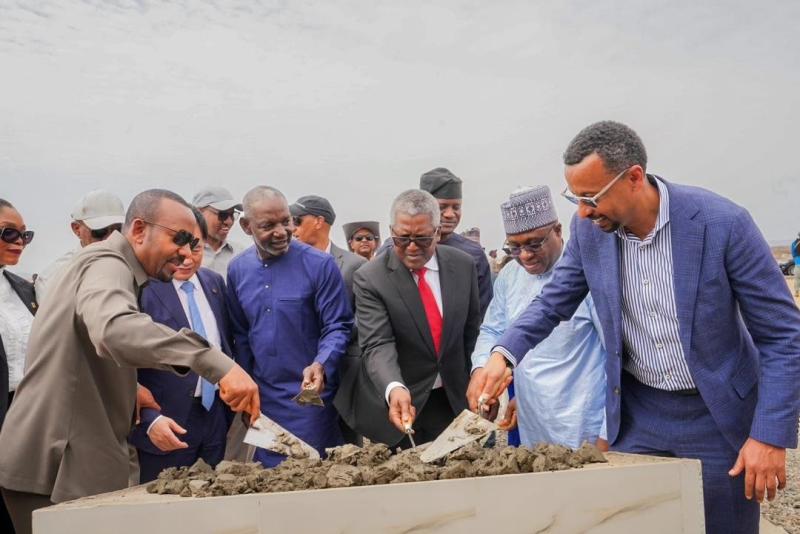
Reported by: Agande Richard Aondofa | Edited by: Henry Owen
A major milestone in African industrial cooperation was marked recently in Gode, Ethiopia, as leaders from government and business gathered for the groundbreaking of the $2.5 billion Dangote Gode Fertiliser Plant. The ceremony was led by Ethiopian Prime Minister Abiy Ahmed, alongside prominent figures including Chairman of MRS Oil Nigeria Plc, Sayyu Dantata; President and Chief Executive of Dangote Industries Limited, Aliko Dangote; Group Chairman of the Nigerian Exchange (NGX) Group, Dr. Umaru Kwairanga; and CEO of Ethiopia Investment Holdings, Biru Taye.
The project, spearheaded by Dangote Industries, is set to become one of the most significant fertiliser plants in Africa, strengthening Ethiopia’s agricultural sector while deepening economic ties between Ethiopia and Nigeria. Prime Minister Abiy Ahmed described the groundbreaking as a “turning point” for the Horn of Africa nation, noting that agriculture remains the backbone of Ethiopia’s economy, and enhanced access to fertiliser will boost yields, ensure food security, and reduce reliance on imports.
Aliko Dangote, speaking at the event, emphasized that the plant reflects the company’s broader vision of investing in Africa’s industrialization. He highlighted that beyond production, the project will create thousands of direct and indirect jobs, build local expertise in engineering and agronomy, and support regional trade. Dangote noted that Ethiopia’s vast arable land and commitment to agricultural modernization make it an ideal location for such an investment.
Sayyu Dantata, Dr. Umaru Kwairanga, and Biru Taye also reiterated the importance of collaboration between African governments and private investors in driving sustainable development. They stressed that the Gode project represents more than a single investment—it signals confidence in Africa’s capacity to industrialize and compete globally.
For Ethiopia, the fertiliser plant is expected to deliver not just economic benefits but also social impact, particularly for farmers who often face high input costs and limited supply of fertiliser. Analysts believe the project could position Ethiopia as a hub for agricultural production in East Africa, while Nigeria’s private sector role underscores the growing influence of cross-border African partnerships in shaping the continent’s future.
The $2.5 billion facility is scheduled to be completed in phases, with operations expected to commence within the next three years. It will produce high-quality fertilisers for both domestic use and export, contributing significantly to Africa’s food security agenda.
📩 Stone Reporters News | 🌍 stonereportersnews.com | ✉️ info@stonereportersnews.com
📘 Facebook: Stone Reporters | 🐦 X (Twitter): @StoneReportNews


Add comment
Comments